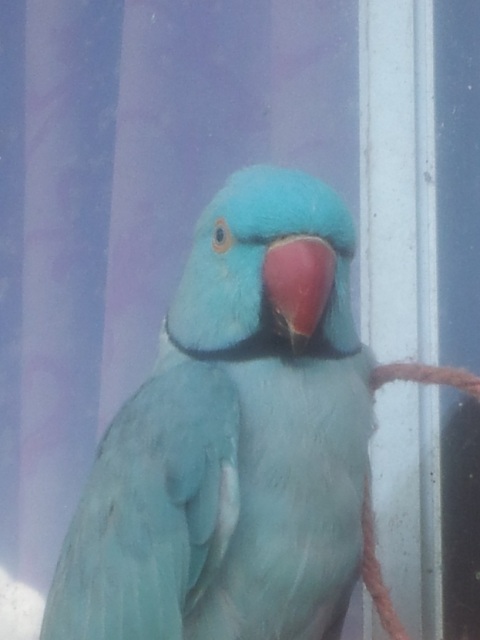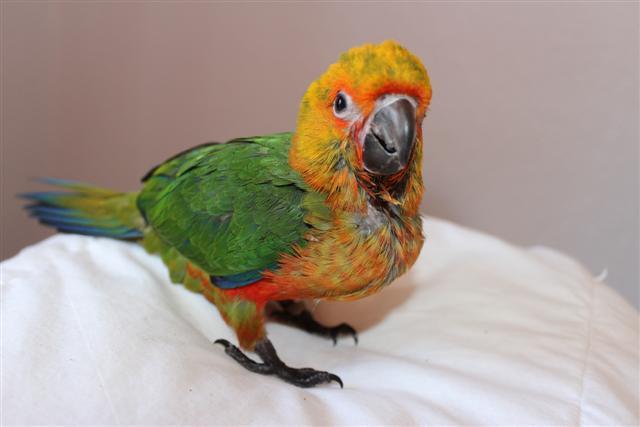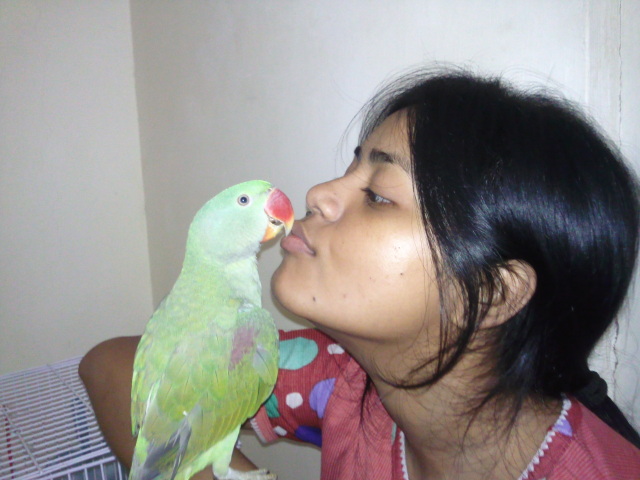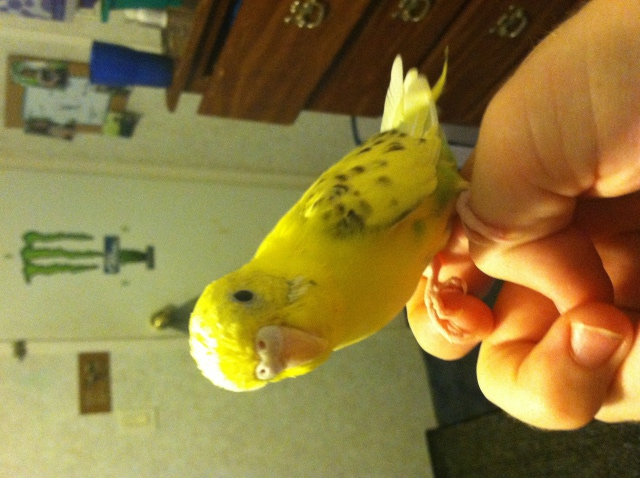QuestionOur 17 year old Grey that we have had for 4 years has recently started doing an unbearably high pitched whistle and saying "want to go to bed? " and tearing up all her newspaper and boxes if we put them in her cage. She sits with my husband who is the person she is most bonded with and makes a weird almost sucking sound and does movement with her tail that makes me think 'she' may be a male. It really appears to be a breeding type behaviour but we aren't sure what to do with her. We end up covering her alot as the sound she makes is unbearable and she makes it more as soon as my husband is around. Is this a hormonal phase that will pass? Should he handle her or not right now, it is like she wants to mate with his hand. Very confusing. Her plumage is not as glossy as usual and I don't think she is eating as much. She seems to save up bowel movements too somewhat like a broody chicken does. We don't know what sex she really is , so it is confusing. Any advice? Thank you.
AnswerHi, Kathy,
From the information in your post, it sounds like increased hormonal activity in your grey. However, you know your bird better than anyone else does, as far as determining if your bird is ill or other. I mention illness because you state his/her plumage is not as glossy as usual and the eating. This could be a dietary problem or other health issue. The tearing up of newspaper, etc., could be nesting behavior, it could be due to boredom, lack of sufficient mental stimulation, etc. Greys are very intelligent parrots and require much human interaction and mental stimulation on a daily basis.
Your bird could be a male based on the behavior you describe, but sometimes females behave like this as well. It just depends on the individual bird. I recommend having the bird DNA sexed in order to help sort through some of these issues. Visit Avian Biotech or Zoogen Labs on the internet. It costs about $20, testing kits are free, and you can do this test at home if you know how to trim your bird's toenals. You mail the test in and can have results in as little as a week via E-Mail.
I don't think it's a problem for your husband to handle the bird. There's not really much you can do with natural behavior associated with increased hormonal activity but to try and discourage the behavior....it's only natural when a bird is bonded to another bird or its human. It's the bird's way of expressing its affection.
I don't like recommending discouraging natural behaviors. I prefer finding another way around the problem. For example, when the bird tries "mating" with your husband's hand, your husband should move his hand away from the bird and tell the bird "no" (or whatever command you use with your bird). When the bird is whistling and you can't stand the noise, get your bird interested in something else instead of putting s/he in its cage and covering the cage (or leave the room for a bit until the bird stops). A mistake a lot of parrot owners make is they actually support bad behavior by their reaction to the behavior. In other words, putting the bird in its cage when it starts the high-pitched whistling may actually encourage the behavior because the bird may be doing this to get your attention. Putting the bird in the cage and covering it is a way of giving the bird exactly what it wants....attention. I recommend completely ignoring any bad behavior and ALWAYS reward positive behavior. When your bird doesn't whistle with high pitched sounds, reward it. When it does what you ask, reward it.
I think you need to discern if this behavior is hormonal, which it sounds like to me, or whether your bird could be ill or have dietary deficiencies, etc. However, the plummage and lack of eating concerns me. Could your bird be under some type of stress? Stress can affect behavior, plummage, etc.
Chrys

 RE: Indian Ringneck probems
Question
Indy our Ringneck
Thank you for your he
RE: Indian Ringneck probems
Question
Indy our Ringneck
Thank you for your he
 Jenday Conure Weaning?
Question
Castor the Conure
Hi
I have a 9 week o
Jenday Conure Weaning?
Question
Castor the Conure
Hi
I have a 9 week o
 can i give my parrot chole(chana) called in hindi
Question
my little chaddi alexa
dear sir,
can give chan
can i give my parrot chole(chana) called in hindi
Question
my little chaddi alexa
dear sir,
can give chan
 Parakeet gender
Question
Parakeet
Hi, I looked for an expert und
Parakeet gender
Question
Parakeet
Hi, I looked for an expert und
 ID Birds
Question
Panama Birds
My uncle served in Panama in 1941
ID Birds
Question
Panama Birds
My uncle served in Panama in 1941